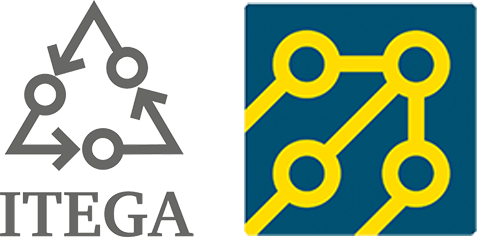

| VIEW AGENDA | VIEW INVITATION | LEARN MORE ABOUT MULTISTAKEHOLDER PROCESS | WHO’S BEEN PARTICIPATING? |

WHAT HAPPENED?
The third of three working meetings, involving more than 100 people. A new effort to help consumers gain more control over their identity and privacy, without breaking the business and civic value of the Internet.
-
VISION –– Access to abundant, high-quality journalism vital for a particpatory democracy.
MISSION — Fostering a digital marketplace that respects user privacy and trustworthy identity.
METHOD — A forum convening, developing and implementing governing protocols and business rules that enable and balance trust, privacy, identity and information commerce.
Advertising works best for brands in a quality, trustworthy context. The evolution of programmatic advertising, coupled with a wild-west atmosphere for the trading and handling of user data, has created a “Lumascape” industry that siphons an estimated $16 billion in one year into hard to track and confirm — or outright fraudulent — ad spend. For brands that consider reducing such waste and fraud a priority, 2018 has been a pivotal year. With stringent new privacy regulations across Europe, and potentially in California, its time for a new effort to help consumers gain more control over their identity and privacy, without breaking the business and civic value of the Internet.
ACTION STEPS
The “Internet Multistakeholder Privacy Initiative,” formed in September by the Information Trust Exchange Governing Association, the Local Media Consortium, and facilitated by an initiative of the Internet Society, is seeking ideas and participation from policy makers, brands, agencies, associations and ad technologists. Three efforts underway:
- Create a uniform, model privacy policy for quality publishers that guarantees consumers knowledge, consent and control over the use of data which can be used to target them individually.
- Deploy a federated-authentication, single-sign-on (SSO) network, governed by ITEGA, which publishers can offer as a convenience to their users
- Support the fielding of a prototype anonymous user-data exchange, governed by a public-benefit nonprofit organization.
“Trust, Identity and Data Privacy — A Multi-Stakeholder Approach: Protecting consumers, news, brands and democracy” is the one of a series of open discussions and reports that are part of the Internet Multistakeholder Privacy Initiative — and the only meeting currently planned for Washington, D..C.
CONVENING GOALS & DISCUSSION TOPICS
Review the current state of privacy and identity to assess new approaches to consumer privacy, data management and ad transparency
KEY PRIVACY QUESTIONS
- Browser privacy improvements, starting with Apple Safari’s Intelligent Tracking Prevention and testing of Global Consent Manager in Mozilla, are half of a powerful anti-fraud system. The better that the browser protects the user’s information from leaking from one site to another, the less it looks like a fraudbot. How can publishers and brands help shift ad budgets away from fraud?
- Regulation and browser privacy improvements are making contextual targeting more important. Where can publishers offer opportunities to reach human audiences in the right context?
- As sharing of user data without permission becomes less practical, new platforms are emerging to enable users to share information about themselves by choice. (For example, a user who comments on a local news site about traffic may choose to share their neighborhood and the mode of transportation that they take to work.) How can user data sharing platforms leverage user relationships with trustworthy sites?
- Consent management is still an unsolved problem. While the IAB’s Transparency and Consent Framework provides a useful foundation to build on, today’s consent forms are too annoying for users and also make it difficult and time-consuming to do anything except select a single all-or-nothing choice. How can accurate and convenient consent management give advantages to sites and brands that users trust?
-
RELATED LINKS:
- MOZILLA’S AUG. 30 BLOG ANNOUNCEMENT: “Changing our approach to anti-tracking”
- MOZILLA’S Steve Englehardt: “Why we need better tracking protection”
Discussion questions:
- What online privacy and advertising practices currently used by local media are creating a barrier to trust and should be eliminated or modified?
RESOURCE: Consumer Bill of Rights Checklist - What practices not in general use today could be adopted to build trust?
- What is the impact on publishers and journalism of eliminating third-party data collection without specific user consent?
- What advertising practices that degrade the user experience should be discouraged?
- What is a “moonshot” idea to deal with these challenges?
Possible solutions for discussion:
- Components of a model consumer privacy policy
- Communication between sites and their readers
- Greater cooperation with browser providers
- Certification program for advertisers based on reputation and practices
MULTISTAKEHOLDER PROCESS
ITEGA’s work has been inspired by The Internet Society’s Collaborative Governance Project. The ideal multistakeholder process has the following attributes:
- Stakeholder-driven: Stakeholders determine the process and decisions, from agenda setting to workflow, rather than simply fulfilling an advisory role;
- Open: Any stakeholder may participate and the process includes and integrates the viewpoints of a diverse range of stakeholders;
- Transparent: All stakeholders and the public have access to deliberations, creating an environment of trust, legitimacy, and accountability; and
- Consensus-based: Outcomes are consensus-based, arrived at by compromise, and are a win-win for the greatest number or diversity of stakeholders.
WHO IS ORGANIZING?
The two organizing groups are:
- The Information Trust Exchange, a 501(c)3 nonprofit former last year with a mission to help foster rules and services for trust, privacy, indentity and information commerce on Internet.
- The Local Media Consortium (LMC), which representing 70+ local media companies in top markets across the United States covering more than 1,600 publications and broadcasters,
- THE CHALLENGE/OPPORTUNITY: Chris Hendricks at the Local Media Consortium
- HOW NMA is HELPING: Seeking policy help on ad blocking to support privacy, quality
VIEW DRAFT AGENDA | GO TO GENERAL INFORMATION PAGE | | LEARN MORE ABOUT MULTISTAKEHOLDER PROCESS | WHO’S PARTICIPATING?
